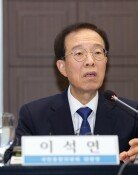Alls Fair In Education Board Races
Alls Fair In Education Board Races
Posted June. 29, 2006 03:21,
Kim, support me once and Ill never forget it.
A certain Kim, a principal at a middle school in North Gyeongsang Province, received more than ten phone calls like this recently. They were made by his seniors who are public servants in education like Kim, running for the upcoming election for the local superintendent of education and members of the board of education.
Sometimes I get several phone calls a day, said Kim. Sometimes the expectant candidates come across each other as they visit my office.
A month ahead of the fifth nationwide election for local boards of education, scheduled on July 31 (August 11 in Ulsan), illegal pre-election campaigns are prevailing all around. The election for the superintendent of education of North Gyeongsang Province and Daejeon City also takes place on this day. According to the relevant Law of Local Education Autonomy, 140 members of local educational boards are to be elected nationwide, except for Jeju. Since the number of candidates has increased profoundly, an average of three to four applicants will compete for a seat in each constituency. As the membership in the board has been converted into a salaried post, members receive as much as 35 million won a year, nearly a 30 percent increase in average. Members of the board assume various authorities such as examining the annual budget of and conducting inspections on the office of education.
The votes are held by members of school management boards, consisting of teachers, local figures, and parent representatives. There are more than 119,000 school board members in sum over the country.
Election campaigns permitted by the law are limited to three methodselection posters, public speech, and debates organized by mediaand should be carried out only during the span of 10 days between the registration of candidacy (June 21) and the voting day. Whatever is in breach of these rules is considered illegal.
However, many of the candidates have established unofficial election camps and have already embarked on campaigns. They even brazenly demand principals and vice-principals to drum up parents support for them because they believe that the principal can be very influential on the school board members.
In the case of North Gyeongsang Province, four or five expectant candidates for superintendent, and about 30 candidates for membership in the board of education are waging a war to secure contact information of the 8,900 school board members and are figuring out if they have anything in common with the members, whether its blood, region, or school, hoping they could take advantage of the connection. It is no more a secret that factionalism is rampant between elementary and secondary education officials, as well as university and college graduates of education.
A former principal, running for the superintendency in North Gyeongsang, said, Since there is hardly a way to advertise myself to people, I have no choice but to use alumni and regional ties to secure supporting votes. Dont you think the law should be changed to allow at least distributing name cards?
On the other hand, schools also find themselves in a difficult position to reject the expectant candidates requests since the results of the election play a vital role in personnel affairs, and school officials are entangled with the candidates in senior-junior relationships, particular among educational public servants. It is also a burden for schools if their incumbent principal or district superintendents fail in the election because they can still retain their positions even in such a case.
In North Jeolla Province, where present district superintendents of four citiesJeonju, Iksan, Muju and Buanare running for a seat in the board of education, principals and vice-principals of each school are having a hard time squirming between their bosses and reading their faces.
Some middle school principals complained that there are too many demands for help, promising they will repay with what we need once they are elected. They confessed that since the district superintendents assume the power to rate our efficiency, its very difficult to refuse their requests.
Telling the difference between usual meetings and pre-election campaigns, an official from the North Gyeongsang Election Commission said, is anything but simple. Since the illegal campaigns are mostly secretive, it is very difficult to oversee them closely as we do in other elections for general official posts.
Kwon-Hyo Lee Kwang-Oh Kim boriam@donga.com kokim@donga.com




![[속보]美 “미국인은 이란 당장 떠나라” 대사관 긴급 공지](https://dimg.donga.com/c/138/175/90/1/wps/NEWS/IMAGE/2026/01/13/133147285.1.jpg)


